

We may earn revenue from the products available on this page and participate in affiliate programs. Learn More ›
Most houses are equipped with a variety of appliances that make it easier and more efficient for us to complete our everyday tasks. Freezers and refrigerators store food, stoves and ovens make it possible to cook that food, and appliances like dishwashers and garbage disposals help with cleanup. In return, we clean and maintain these appliances to keep them in tip-top shape. Many of us, however, have bad habits that may be damaging our appliances.
These bad habits we perpetuate are unintentional. They’re things we do when we’re in a rush or tired, and not thinking about the negative impact our behavior can have on control boards, gaskets, and other appliance components. To make sure they’ll be going strong when you need them, steer clear of these routines that may be killing your appliances, then make an effort to change your problematic practices.
1. Using Hot Water in Your Garbage Disposal
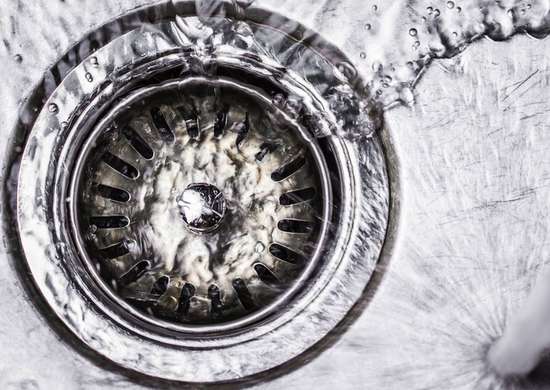
It may seem counterintuitive, but hot water should not be used for cleaning kitchen scraps from the sink. When running the garbage disposal to grind up food, use cold water instead. Hot water melts grease and fat, which only leads to clogged garbage disposal drains and mechanical damage.
RELATED:How to Clean a Garbage Disposal
2. Leaving Coins in Your Pockets

Check all your pockets for bills and coins carefully before putting pants in the washer. Loose coins can damage the drum and may work themselves into nooks and crannies, causing a jam—and an expensive repair.
RELATED: 19 Laundry Mistakes You’re Probably Making
3. Overfilling the Freezer
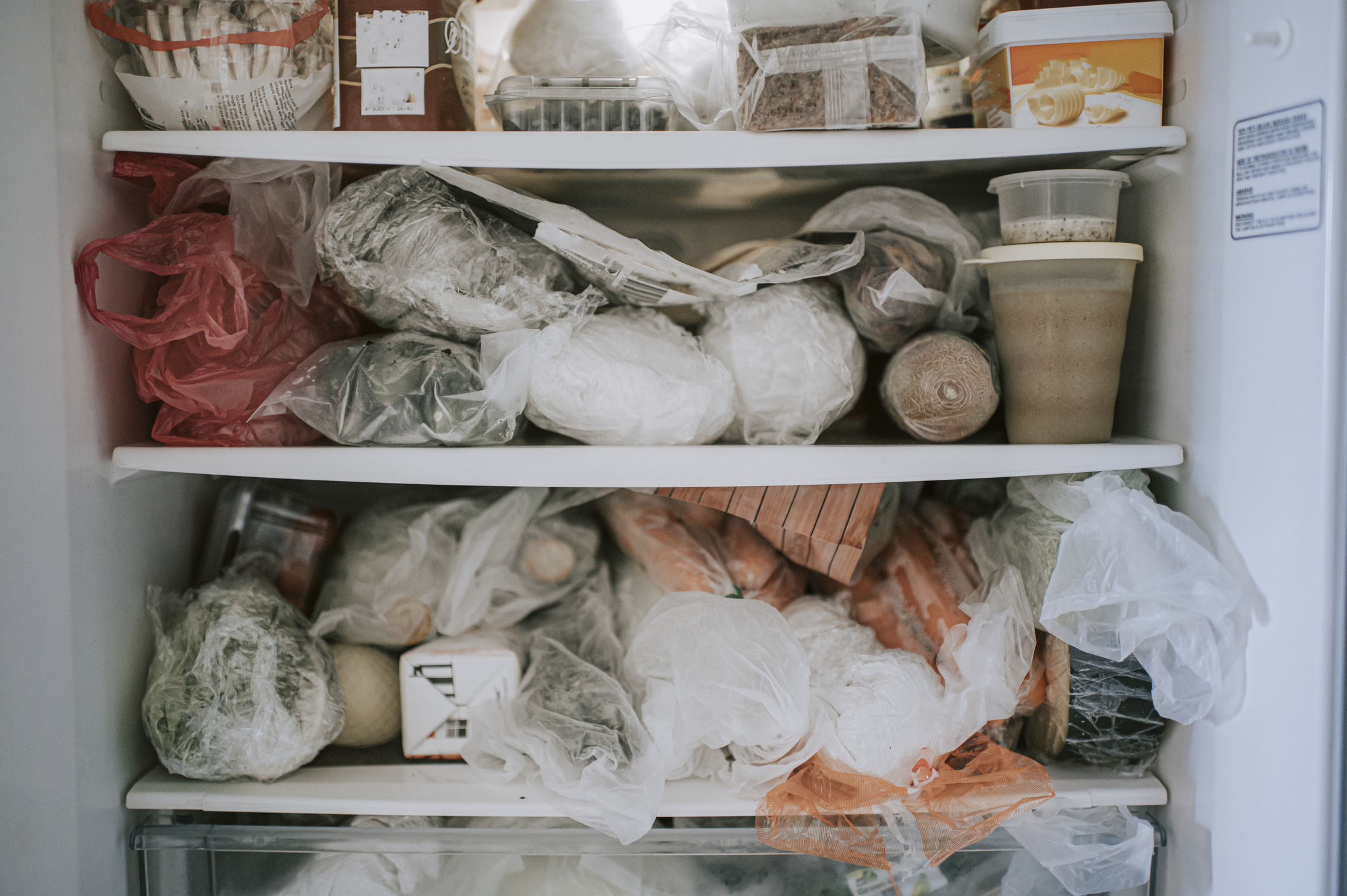
It’s true that a full freezer works more efficiently than an empty one, but there can be too much of a good thing. Overfilling the freezer can block air vents, restrict the flow of cold air, and overtax your refrigerator’s condenser, which could lead to a burnout.
4. Overloading the Washing Machine
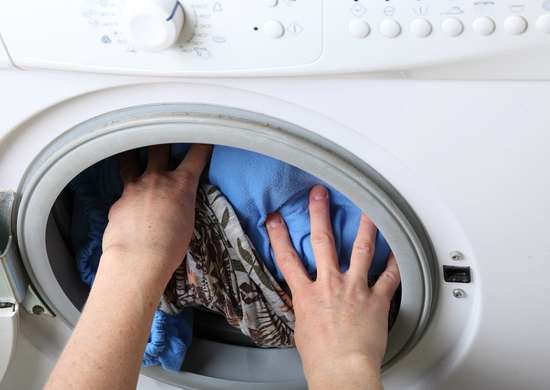
It’s tempting to stuff the washing machine to the brim when the laundry piles up, but don’t. An overloaded washer puts undue stress on the bearings, throws the drum out of alignment, and can lead to a washing machine repair call.
RELATED: Become a Laundry Ninja With This Guide to Washing Machine Settings
5. Leaving Spills in the Oven
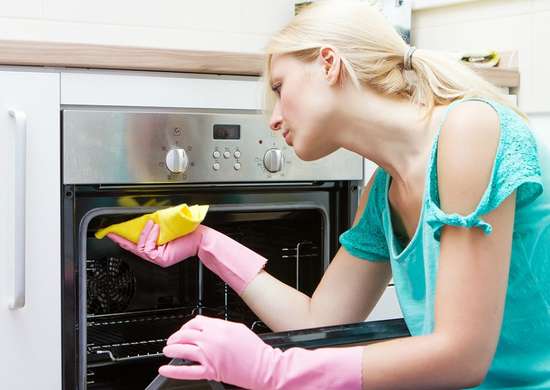
Spills are a natural by-product of cooking. Anything spilled in your oven should be cleaned up right away or it may damage the heating coils, leading to costly repairs.
Pro tip: Use a silicone oven liner on the bottom rack of the oven to catch spills when they occur. This makes cleaning the oven easier and less time-consuming.
RELATED: How to Clean an Oven
6. Letting Lint Build Up in Your Dryer

Remember to clear the lint trap in your clothes dryer after every load. If you don’t, your machine will be much less efficient, and less safe to run. Lint that gets clogged in the vent pipe can start a fire.
RELATED: What’s Causing That Burning Smell Coming from the Dryer? Solved!
7. Using Soap to Clean Your Gas Range Burners

Avoid cleaning the burners of your gas range with soap. Doing so can lead to corrosion and clog the lighting hole, causing your burners to ignite slowly, or fail to ignite at all. Instead, mix water and baking soda to create a paste, then apply a thin layer of the paste to the burners and caps. Allow the paste to work for about 15 to 30 minutes, then use a toothbrush or scrub brush to clean the burners. For more cleaning options, read your manual and follow the manufacturer’s instructions for cleaning.
8. Placing Sharp Objects in the Dishwasher
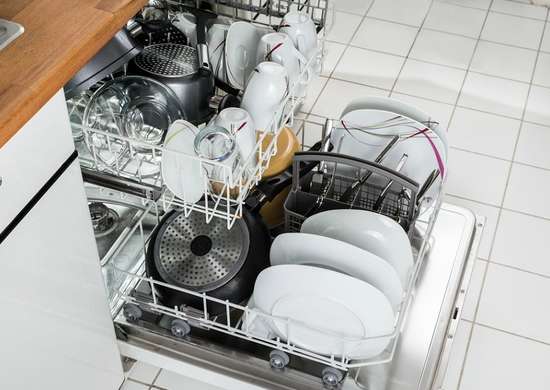
Avoid putting sharp objects in the dishwasher. Even if you put them in a cutlery basket with the sharp ends pointing up, you can still dull the blades of the knives and damage the racks. Any nicks in the vinyl coating of the racks will lead to rust, which will stain your dishes until you replace that dishwasher.
RELATED: Solved! How Long Do Dishwashers Last?
9. Using Cast Iron on Your Ceramic Cooktop
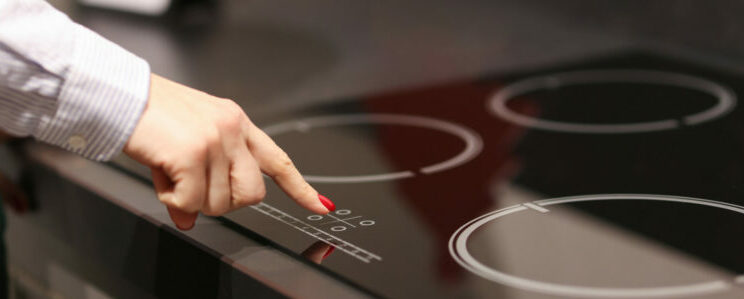
The bottom of a cast iron pan is rough, and can easily scratch a smooth ceramic cooktop. For this reason, it’s a good idea to avoid using cast iron cookware that isn’t coated. With all pots and pans, be sure not to drag them on and off the stovetop, but rather pick them up and lift them to and from the burners.
RELATED: The Best Induction Ranges to Upgrade Your Kitchen
10. Allowing Grime to Linger on the Fridge Gasket
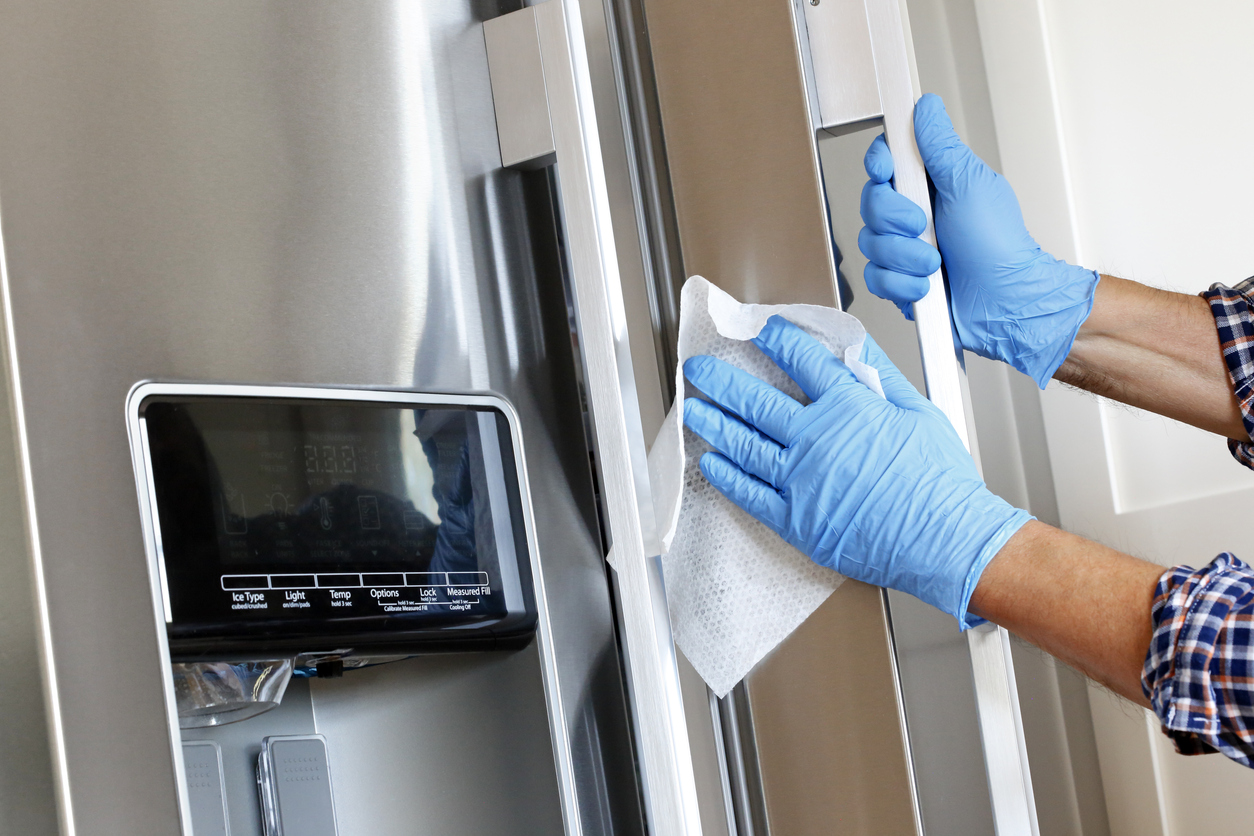
Refrigerator doors have a rubber gasket that runs along the outer edge of the door. The gasket keeps the door properly sealed when it is closed. Over time, however, the gasket can get dirty, and the built-up grime can prevent the door from sealing. The improper seal allows cold air to seep out of the fridge, reducing the cooling efficiency of the appliance and forcing it to work harder to compensate. This strain can eventually cause the compressor to fail, leading to a costly repair. Don’t wait for the worst to happen. Instead, clean the rubber gasket with warm water and soap, and be sure to do it regularly.
RELATED: 9 Signs You Need to Replace Your Fridge
11. Mistreating the Microwave Door
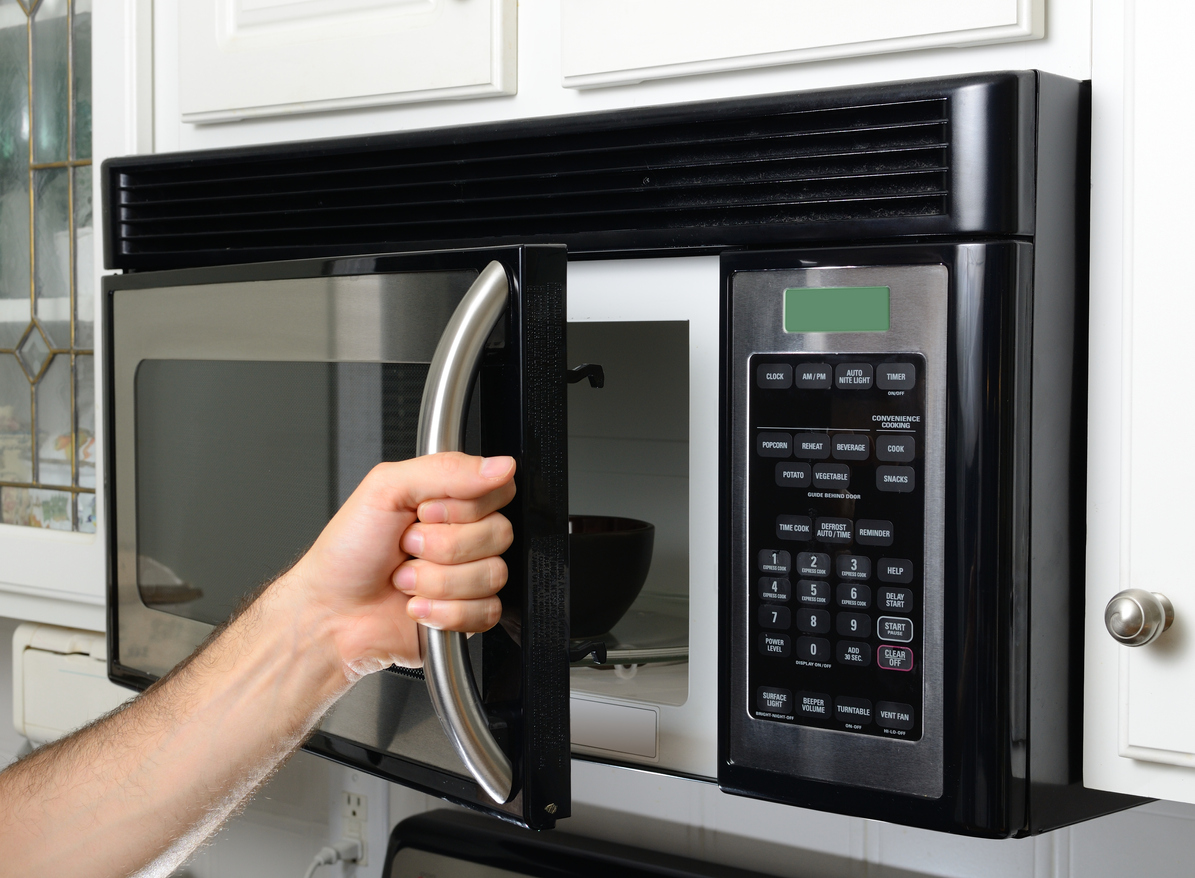
Microwave doors are often slammed shut, pulled open while the appliance is still working, or even pushed shut with an elbow when your hands are full. Rough closings wear on the latch mechanism of the door and can cause it to break, and pulling the door open while the appliance is running can end up blowing a safety fuse.
To avoid premature repair or replacement of the microwave, slow down a bit and stop to think before you act. Instead of elbowing the door closed, put things down on the table first. Wait for the microwave to finish before you try to open it. A little patience will pay off in a longer lifespan for your appliance.
12. Cleaning Air Fryer Components With Scouring Pads
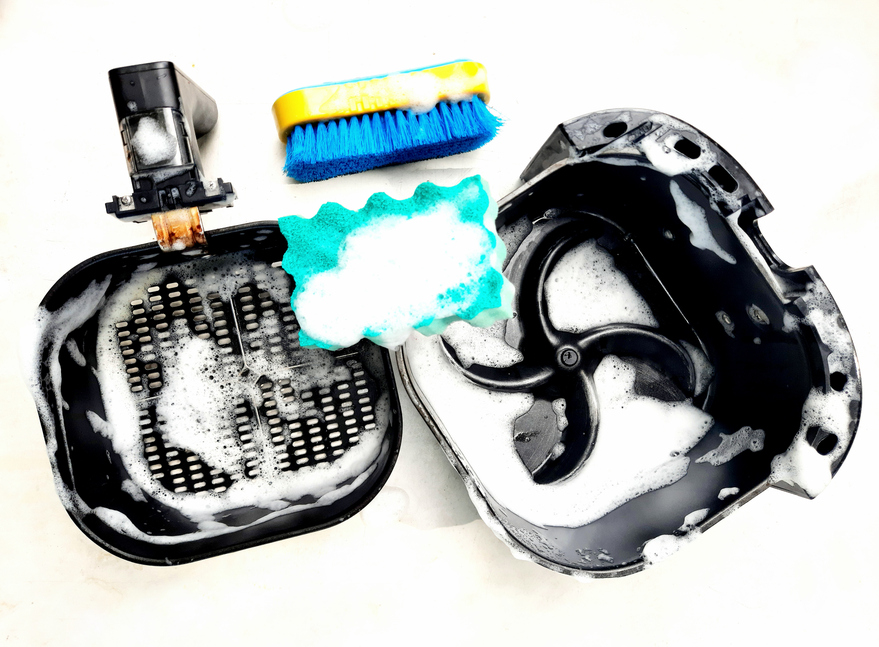
After using the air fryer, it’s essential to clean the components to avoid off-tasting food, poor cooking performance, and even fires. However, you should never use harsh metal scouring pads to clean the racks, the basket, or any other air fryer components. The abrasive metal can damage the protective coating, leading to rust and permanent damage.
Instead, simply soak the dirty racks and basket in warm, soapy water for about 15 to 20 minutes, then use a sponge, cloth, or soft brush to wipe off any stuck-on food. Rinse and dry the air fryer components before putting the appliance away.
RELATED: The 7 Best Air-Fryer Toaster Ovens, Tested and Reviewed
13. Neglecting to Empty the Vacuum
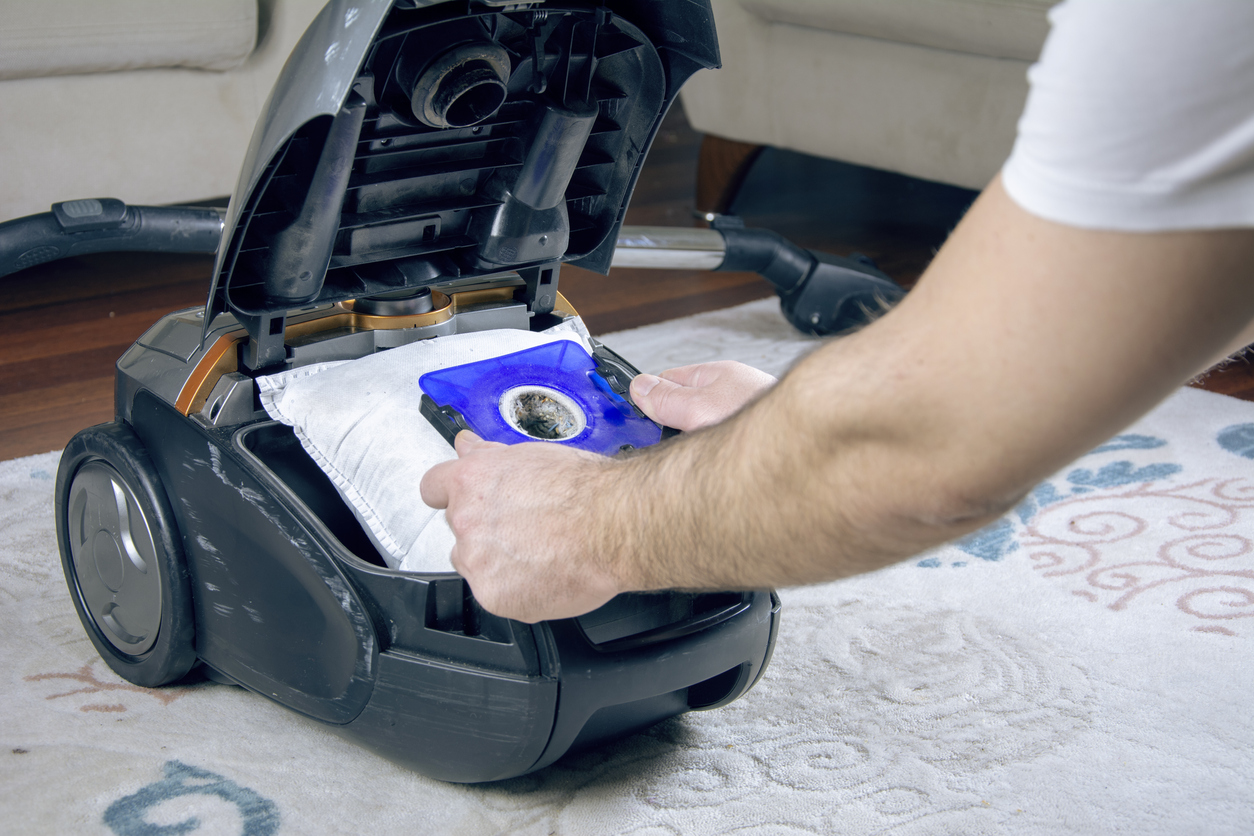
Vacuums are tremendous time-savers that help keep floors, carpets, upholstery, curtains, and other household surfaces free of dust and debris. The only real drawback to these machines is that you need to periodically change the vacuum bag or empty the bin or canister.
If the appliance is not regularly emptied, it can lead to a decrease in suction and reduced operating efficiency. Neglecting this task can, over time, cause the motor to burn out. While you’re at it, be sure to change the filter, as a clogged filter can also affect efficiency. Don’t get sucked into paying for vacuum repairs when the solution is as easy as changing a vacuum bag or putting in a new filter.
